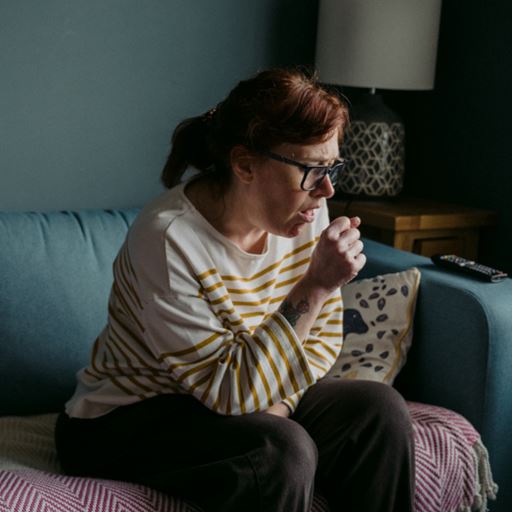Could your cough tell you if you have COVID-19 or not?
-
Date
Mon 20 Apr 20

People who have been diagnosed with COVID-19 are being asked to record their coughs as part of a new clinical study looking at a new way of diagnosing the disease.
Led by the University of Essex, the project is investigating if it is possible to use advanced artificial intelligence techniques to detect the difference in cough sound between someone with a severe pulmonary infection such as Coronavirus and coughing caused by other infections or allergies.
The researchers have already collated 100 clinically-validated coughs from about 30 patients but want to recruit 200 COVID-19 patients in total for the project.
If successful, this could prove to be a quick, cheap and viable alternative to the current testing for COVID-19 which involves specialist materials and training, with clinical teams having to rely heavily on laboratory tests which can take hours and sometimes days to come back.
In comparison this test would only need a smartphone.
“The unique qualities of a coughing sound from a severe pulmonary infection, such as Coronavirus, can help us to detect infection and even possibly the progression of a disease,” explained Dr Javier Andreu-Perez, who is leading the research.
“We can then use advanced methods of artificial intelligence and pattern recognition to analyse these sounds in frequencies that are beyond the human hearing and be able to identify those coughs which are unique to this type of infection,” he added.
Using a special web app, the researchers want as many volunteers as possible to record their coughs, so they have a large dataset of varieties and cough types.
Dr Andreu-Perez, from the University’s School of Computer Science and Electronic Engineering, is working on the technological development side of the project, alongside Dr Eva Timonet, from the Costa del Sol Health Agency in Spain, who is leading the clinical data gathering side.
The team has developed a data collection web app that is also accessible via mobile, where anybody who is currently suffering from the disease can participate in the study by uploading their cough samples during their quarantine.
If the initial sample results are successful in identifying people with Coronavirus the research team will investigate going to the next phase of the project which will be developing the mobile app further so it will be able to diagnose a cough linked to Coronavirus.
“For this project to be a success, it is very important we can obtain data from patients with mild-symptoms that have not been hospitalised but quarantined,” Dr Andreu-Perez added.
Dr Timonet, added: “As well as the health problems linked to chronic diseases is that of an increasingly aging population. This pandemic is affecting this vulnerable population to a greater extent, in terms of a greater number of hospitalisations and deaths, exponentially increasing health spending.
“Research projects like this one, aimed at preventing the spread of disease and contagion, are a priority and fundamental to overcome the health and economic problem caused by the pandemic.”
.jpg?mh=500&mw=500&hash=6568B6C9CCF5290A596BEF6678B6AD0E)



